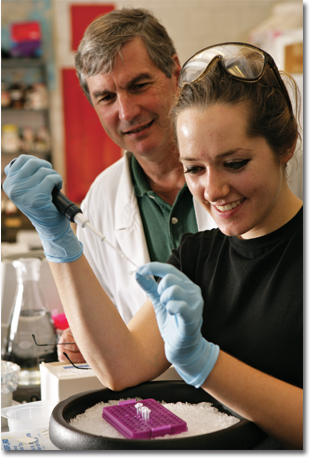Curriculum Vitae
When Charlie Dobb '12 signed up for a political theory class his first semester at Vassar, he went in expecting lectures on abstract theories. He was wrong.
Led by Sarita Gregory, assistant professor of political science, the class had as one of its first assignments visiting local polls. “It was really impressive to have a small class with a professor talking about grassroots advocacy,” says Dobb. “She encouraged us to discover our individual roles in the community.”
In 2008 Gregory took this community engagement to the next level by starting the Dutchess County Citizen Action Network (DCCAN), a program designed to engage college students in the election process and address the nationwide shortage of certified poll workers. Supported by a $34,000 Help America Vote grant from the U.S. Election Assistance Commission, Gregory recruited over 200 students, including Dobb, from Vassar and other local colleges to train as certified poll workers for the 2008 election. “The students felt as though they were a part of history that night,” says Gregory. “They got to see democracy in action.”
Last year the program was one of just 11 programs nationwide to receive a 2009 Help America Vote College Program grant. The grant will establish a curricular option for students in the Hudson Valley that will allow them to receive college credit for their DCCAN poll work. Gregory has already started designing this new course, which will be offered by the Department of Political Science this fall.
“I want this work to spark meaningful conversation,”Gregory explains. “Learning doesn’t happen just inside the classroom. It’s important to recognize that there are many approaches to learning, and I want to get [students] engaged in the community early on.”
This hands-on, head-first approach to learning is a common theme at Vassar. “When you have teachers who commit their entire lives to a given field and it’s their passion, they really take your work seriously, too,” says Dobb. “I never feel like my questions are burden some, and professors always want to know what students’ interests are so they can address those issues in class.”
A mentoring approach is prevalent in the sciences where it’s not uncommon for Vassar students to work one-on-one with professors, tackling real-world experiments. The Undergraduate Research Science Institute (URSI) is a prime example—it pairs faculty and students for 10 weeks of intensive summer research. Since its inception in 1986, more than 1,120 students have had the chance to present their work at national and international conferences and also receive publishing credit.

Mentoring relationships flourish in the classroom and over thesis projects as well. Jessica Swienckowski ’08, pictured above, knew she wanted to be a neurosurgeon after taking a lab with Kate Susman, professor of biology and director of the Neuroscience and Behavior program. Swienckowski’s senior research project, which uncovered expressions in a neuron that had never been observed before, was published last year by Susman, Associate Professor of Biology Nancy Pokrywka, and three other students.
“At Vassar, I was able to design my project with Kate as a colleague,” notes Swienckowski.“[The collaboration] exceeded amentor-mentee relationship. She let me be a scientist.” Swienckowski is nowworking for Close Concerns, a consulting firm that focuses on diabetes prevention and treatment in Philadelphia, and applying to medical school.
Maria Kern ’11, shown left, spent last summer working closely with David Jemiolo, associate professor of biology, investigating the genetics of breast cancer in canines. The project was the result of a partnership between Jemiolo and Joe Impellizeri, a local veterinarian who specializes in oncology. “He brings the expertise about dogs and the ideas for things that need to be studied,” says Jemiolo. This gives students the opportunity to tackle challenging, real-world research. Impellizeri also supplies them with tissue to study and invites students to do a rotation with him at the veterinary clinic.
Last summer, Kern and Jemiolo spent roughly 40 hours a week in the lab, using molecular biology techniques to study gene expression in human breast cancer before looking for the same gene expression in canines. As part of her research, Kern had the opportunity to go inside the operating room at another vet’s office,where she witnessed her first surgery, from anesthesia to recovery. “I got to be right there, asking questions,” recalls Kern, who credits that day with reaffirming her desire to pursue medical school.
Jemiolo encourages students interested in veterinary medicine to shadow the veterinarians, and also invites them to continuing-education lectures for area vets. According to Jemiolo, this program is batting a thousand: so far every student who has shadowed at the office has been accepted into veterinary school.
“The lab work is a really unique opportunity,” he explains. “When you problem-solve in the classroom, it’s very different than problem-solving in the lab, because the lab is real life.”
—Beth Trickett
Photo Credits: Jessica Swienckowski, Russell Monk; Maria Kern, John Abbott
Have comments about this article? Email vq@vassar.edu
